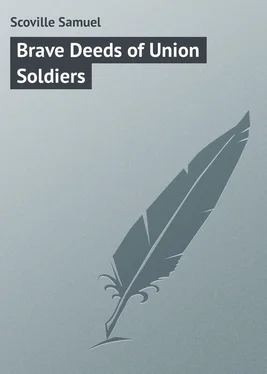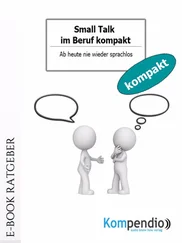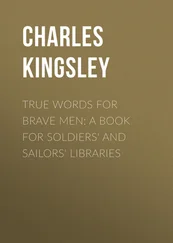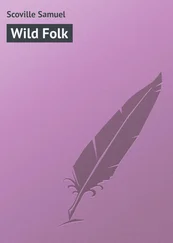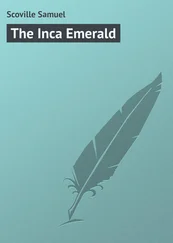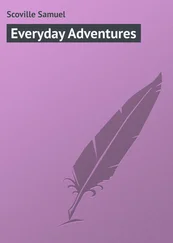Samuel Scoville - Brave Deeds of Union Soldiers
Здесь есть возможность читать онлайн «Samuel Scoville - Brave Deeds of Union Soldiers» — ознакомительный отрывок электронной книги совершенно бесплатно, а после прочтения отрывка купить полную версию. В некоторых случаях можно слушать аудио, скачать через торрент в формате fb2 и присутствует краткое содержание. Жанр: foreign_prose, foreign_humor, Анекдоты, на английском языке. Описание произведения, (предисловие) а так же отзывы посетителей доступны на портале библиотеки ЛибКат.
- Название:Brave Deeds of Union Soldiers
- Автор:
- Жанр:
- Год:неизвестен
- ISBN:нет данных
- Рейтинг книги:5 / 5. Голосов: 1
-
Избранное:Добавить в избранное
- Отзывы:
-
Ваша оценка:
- 100
- 1
- 2
- 3
- 4
- 5
Brave Deeds of Union Soldiers: краткое содержание, описание и аннотация
Предлагаем к чтению аннотацию, описание, краткое содержание или предисловие (зависит от того, что написал сам автор книги «Brave Deeds of Union Soldiers»). Если вы не нашли необходимую информацию о книге — напишите в комментариях, мы постараемся отыскать её.
Brave Deeds of Union Soldiers — читать онлайн ознакомительный отрывок
Ниже представлен текст книги, разбитый по страницам. Система сохранения места последней прочитанной страницы, позволяет с удобством читать онлайн бесплатно книгу «Brave Deeds of Union Soldiers», без необходимости каждый раз заново искать на чём Вы остановились. Поставьте закладку, и сможете в любой момент перейти на страницу, на которой закончили чтение.
Интервал:
Закладка:
"Now you lie quiet," he said, "until the doctor comes and I'll just borrow this rifle of yours and do a little fighting in your place," and Benjamin picked up the gun and slipped on the other's cartridge belt.
"Hi there, you come back with my gun," yelled the wounded man after him. "That front's no place for kids like you."
Benjamin, however, was well on his way before the man had finished speaking and slipping past an indignant doctor who was trying to stop him, he ran forward, keeping as much as possible in the shelter of the trees among which the bullets and grape-shot were whining and humming. He passed many wounded limping to the rear and rows of prostrate men, some still, some writhing in the agony of their wounds. These were the men who had fallen on their way back to the hospital. A minute later Benjamin found himself in the thick of the fight. There had been a Confederate charge which the Union soldiers had just barely been able to drive back. The men were still panting and shouting and firing volleys at the gray forces who were reluctantly withdrawing to rally for another attack. The boy lay down with the rest and loaded and fired his borrowed rifle as rapidly as he could. No one seemed to notice him except the color-bearer who happened to be the man next to him. He had stopped firing to wipe his face and saw the little fellow close by his arm.
"Why don't you get back to the rear where you belong?" he said, pretending to talk very fiercely. "This is no place for little boys. When those gray-backs come back, you'll scamper quick enough, so you had better be on your way now."
"No I won't," said Benjamin positively. "I guess boys have got as much right to fight in this war as men have. Anyway, you won't see me do much running."
Benjamin was mistaken in that last statement, for a minute later the colonel of this particular regiment decided that instead of waiting for a Confederate attack, he would do a little charging on his own account. The signal came. The men sprang over the earthworks and Benjamin found himself running neck and neck with the color-bearer at the head of them all. It was a glorious charge. The ground ahead was smooth, the fierce flag of the regiment streamed just in front and all around were men panting and cheering as they ran. It was almost like a race on the old school-green at home. They came nearer and nearer to the masses of gray-clothed men who were hurriedly arranging themselves in regular ranks out of the hurry and confusion of their retreat. When they were only a short hundred yards distant, suddenly a wavering line of fire and smoke ran all up and down the straggling line in front of them. Men plunged headlong here and there and Benjamin noticed that he and the color-bearer seemed to have drawn away from the rest and were racing almost alone. Suddenly his friend with the colors stopped in full stride, swung the flag over his head once with a shout and dropped backward with a bullet through his heart. As he fell the colors slowly dropped down through the air and were about to settle on the blood-stained grass when the boy, hardly knowing what he did, shifted his rifle to his left hand, caught the staff of the flag and once more the colors of the regiment were leading the men on. Right up to the gray line he carried them, followed by the whole regiment. Firing, cutting and stabbing with their bayonets they broke straight through the Confederates and after a hand-to-hand fight, drove them out of their position. They carried the boy, still clinging to the colors, on their shoulders to their colonel and to the end of his life Benjamin remembered the moment when the colonel shook hands with him before the cheering regiment as the climax of the greatest day of his life.
CHAPTER V
THE CHARGE OF ZAGONYI
In battle the charge is the climax. In other kinds of fighting men have a certain amount of shelter and respite and at long range it makes little difference whether the fighter is strong or weak. In a charge, however, the fighting is hand to hand. As in the days of old, men fight at close grips with their enemy and each one must depend upon his own strength and skill and bravery.
There have been three charges in modern battles which have been celebrated over and over again. The first of these was the last desperate charge of the Old Guard at Waterloo. A thin red line of English held a hill which Napoleon, the greatest of modern generals, saw was the keystone of the battle. If that could be taken, the whole arch of the English and Belgium forces would crumble away into defeat. Again and again the French stormed at this hill and each time were driven back by the coolly-waiting deadly ranks of the English. Toward nightfall Napoleon made one last desperate effort. The Old Guard was to him what the great Tenth Legion had been to Julius Cæsar, the best and bravest veterans of his army who boasted that they had never yet been defeated. Calling them up with every last one of his reserves, he ordered a final desperate charge to break the battle center. To the grim drumming of what guns the little general had left, they rushed again up that blood-stained slope in desperate dark masses of unbeaten men. With a storm of cheers, the columns surged up in a vast blue battle-wave which seemed as if it must dash off by its weight the little group of silent, grim defenders. The Englishmen waited and waited and waited until the rushing ranks were almost on them. Then they poured in a volley at such close range that every bullet did the work of two and with a deep English cheer sprang on the broken ranks with their favorite weapon, the bayonet. That great battle-wave broke in a foam of shattered, dying and defeated men and the sunset of that day was the sunset of Napoleon's glory.
Fifty years later in the great war which England with her allies was waging to keep the vast, fierce hordes of Russia from ruling Europe, happened another glorious, useless charge. Owing to a misunderstanding of orders, a little squad of six hundred cavalrymen charged down a mile-long valley flanked on all sides by Russian artillery against a battery of guns whose fire faced them all the way. Every schoolboy who has ever spoken a piece on Friday afternoon knows what comes next. How the gallant Six Hundred, stormed at with shot and shell, made the charge to the wonder and admiration of three watching armies and how they forced their way into the jaws of death and into the mouth of hell and sabred the gunners and then rode back – all that was left of them.
In our own Civil War occurred the most famous charge of modern days, Pickett's charge at the battle of Gettysburg. For three days raged the first battle which the Confederates had been able to fight on Northern soil. If their great General Lee, with his seventy thousand veterans, won this battle, Washington, Philadelphia and even New York were at his mercy. On the afternoon of the third day he made one last desperate effort to break the center of the Union forces. Pickett's division of the Virginia infantry was the center of the attacking forces and the column numbered altogether over fifteen thousand men. For two hours Lee cannonaded the Union center with one hundred and fifteen guns. He was answered by the Union artillery although they could only muster eighty guns. Finally the Union fire was stopped in order that the guns might cool for Hunt, the Union chief of artillery, realized that the cannonade was started to mask some last great attack. Suddenly three lines, each over a mile long, of Virginia, North Carolina, Alabama, Georgia and Tennessee regiments started to cover the mile and a half which separated them from the Union center. The Union crest was held by the Pennsylvania regiments who were posted back of the stone wall on the very summit. As the gray lines rushed over the distance with a score of fierce battle flags flaming and fluttering over their ranks, the eighty guns which had cooled so that they could now be used with good effect opened up on them first with solid shot and then with the tremendous explosive shells. As they charged, the Virginia regiments moved away to the left leaving a gap between them and the men from Alabama on the right. The Union leaders took advantage of this gap and forced in there the Vermont brigade and a half brigade of New York men. By suddenly changing front these men were enabled to attack the charging thousands on their flank. The Union guns did terrible execution, opening up great gaps through the running, leaping, shouting men. As the charge came nearer and nearer the batteries changed to the more terrible grape and canister which cut the men down like grass before a reaper. Still they came on until they were face to face with the waiting Union soldiers who poured in a volley at short range. For a moment the battle flags of the foremost Confederate regiments stood on the crest. The effort had been too much. Over half of the men had been killed or wounded and many others had turned to meet the flank attack of the Vermont and New York regiments so that when the Pennsylvania troops met them at last with the bayonet, the gray line wavered, broke, and the North was saved.
Читать дальшеИнтервал:
Закладка:
Похожие книги на «Brave Deeds of Union Soldiers»
Представляем Вашему вниманию похожие книги на «Brave Deeds of Union Soldiers» списком для выбора. Мы отобрали схожую по названию и смыслу литературу в надежде предоставить читателям больше вариантов отыскать новые, интересные, ещё непрочитанные произведения.
Обсуждение, отзывы о книге «Brave Deeds of Union Soldiers» и просто собственные мнения читателей. Оставьте ваши комментарии, напишите, что Вы думаете о произведении, его смысле или главных героях. Укажите что конкретно понравилось, а что нет, и почему Вы так считаете.
